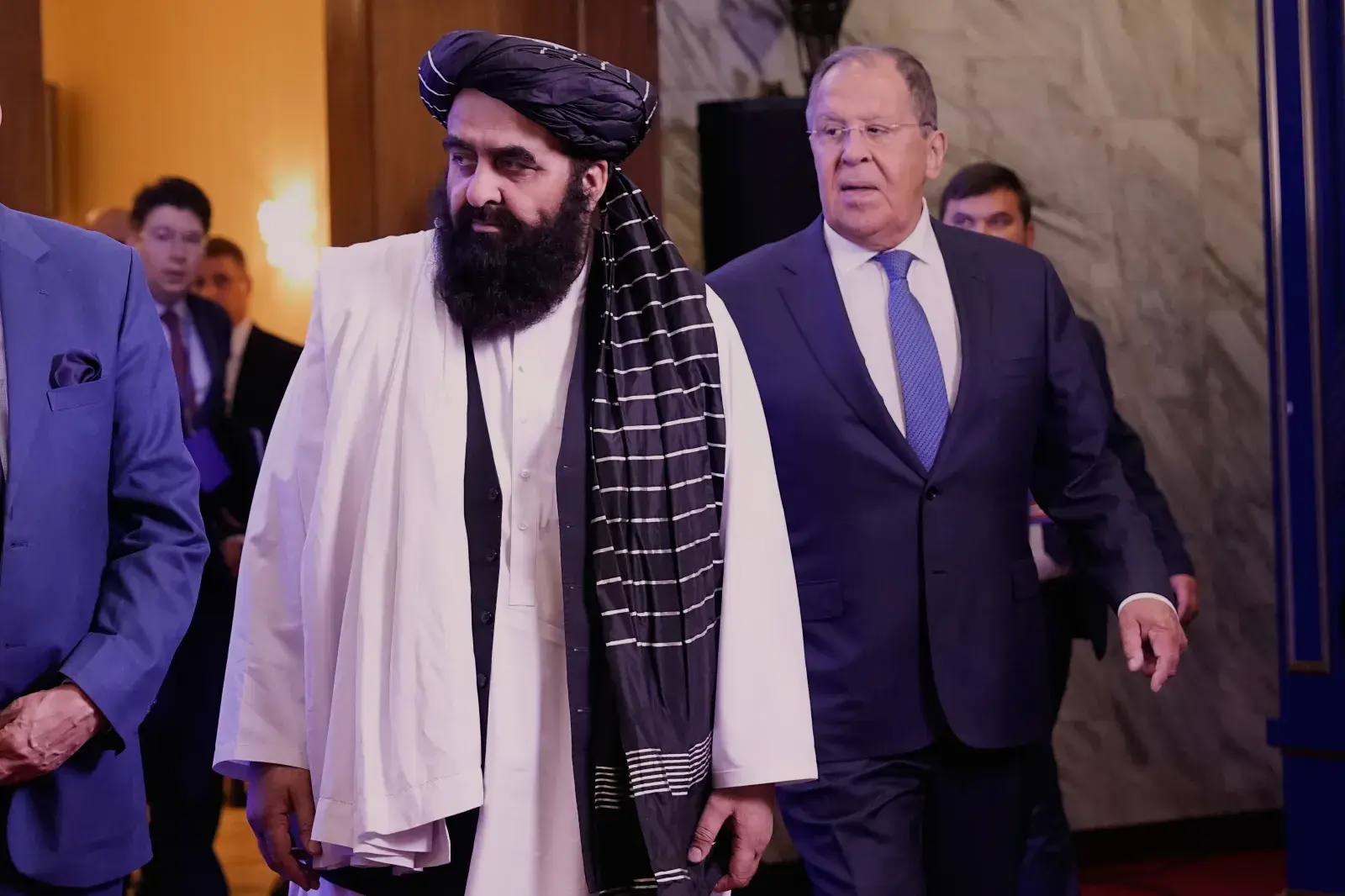By
Breaking News Editor
Why It Matters
The statement came weeks after President Donald Trump said the United States was exploring options to retake Bagram Air Base, the massive military complex abandoned during the chaotic 2021 withdrawal of U.S. and NATO forces.
What To Know
At the opening of the international conference, Russian Foreign Minister Sergey Lavrov praised the Taliban for its efforts to fight Islamic State militants and curb narcotics trafficking but made clear Moscow’s red line against renewed U.S. military involvement in the region.
“The deployment of military infrastructure of any third countries on the territory of Afghanistan, as well as on the territories of neighboring states, is categorically unacceptable under any pretext,” Lavrov said. He warned that any “extra-regional military presence” would only bring new instability, adding that Afghanistan’s history “should have taught everyone the right lessons long ago.”
Newsweek has reached out to the State Department via email on Tuesday afternoon for comment.

Russia’s position reflects deep sensitivities shaped by its own history in Afghanistan. The former Soviet Union fought a decade-long war there before withdrawing its troops in 1989, a conflict that left tens of thousands dead and contributed to the USSR’s eventual collapse. Since the Taliban’s return to power in August 2021, Moscow has sought to strengthen ties with Kabul while asserting itself as a key power broker in Central Asia.
In July, Russia became the first country to formally recognize the Taliban government, removing it from its list of banned organizations. At Tuesday’s talks, Lavrov said Moscow wanted to expand business and energy cooperation with Afghanistan and deepen joint efforts against terrorism and drug trafficking. He also condemned Western sanctions and the ongoing freeze of Afghanistan’s foreign assets, calling those measures “hostile and counterproductive.”
Representatives from China, India, Iran, Kazakhstan, Kyrgyzstan, Pakistan, Tajikistan, and Uzbekistan also attended the Moscow gathering, which focused on regional security and economic development. The talks come as the Taliban, still largely isolated on the world stage, continues to seek legitimacy despite widespread condemnation of its treatment of women and girls.
Since seizing power, the Taliban has reimposed many of the restrictions that defined its earlier rule from 1996 to 2001. Women are barred from most jobs and public spaces, including schools, gyms and parks, while girls are prohibited from education beyond the sixth grade. Those policies remain a major obstacle to broader recognition — even as Afghanistan again becomes a stage for global competition over influence and access.
What People Are Saying
Afghan Foreign Minister Amir Khan Muttaqi, who led the Taliban delegation, praised Moscow’s diplomatic outreach: “We appreciate the bold move of the Russian Federation to officially recognize the Islamic Emirate of Afghanistan,” he said. “We wish that all countries follow the same path.” Muttaqi added that his government has created “a good opportunity for investment, economy, transit and connectivity” after decades of conflict and instability.
U.S. President Donald Trump said: “If Afghanistan doesn’t give Bagram Airbase back to those that built it, the United States of America, BAD THINGS ARE GOING TO HAPPEN!!!”
What Happens Next
The dispute over Bagram is expected to remain unresolved, with the Taliban holding firm and the U.S. weighing its options. The standoff is likely to influence U.S.-Afghan relations and broader regional dynamics, particularly regarding strategic interests in South and Central Asia.
This article includes reporting by the Associated Press.
 Afghanistan Peace Campaign
Afghanistan Peace Campaign